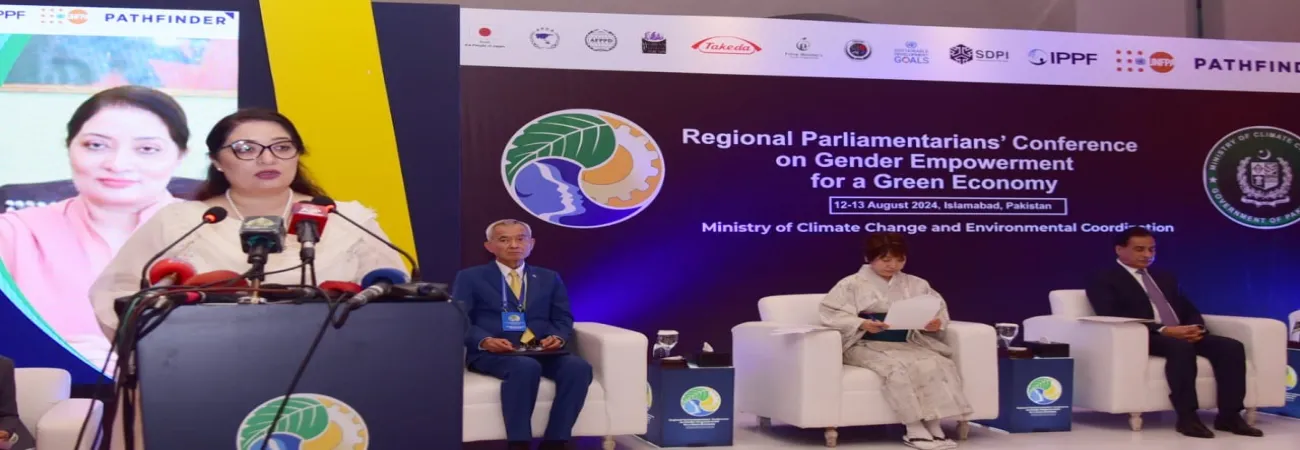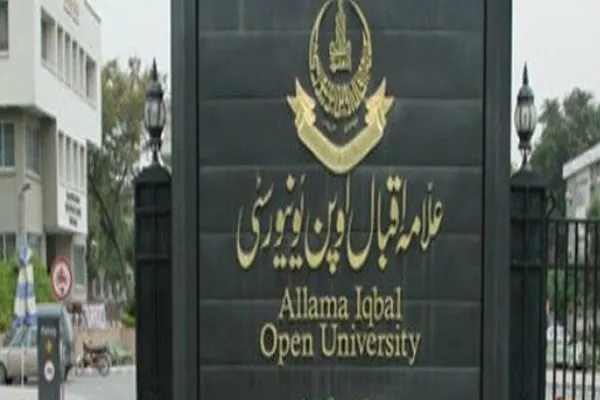i NEWS PAKISTAN
For a successful transition to green economy, women empowerment and gender equality is important to address. Only then sustainable and effective environmental challenges can be coped with, opined the Speakers at a high-profiled regional moot. The two-day event, ‘Regional Parliamentarians Conference on Gender Empowerment for a Green Economy’ was joined by the Parliamentarians from over 15 Asian countries, senior representatives of the diplomatic community, high-level political figures, govt officials, international NGOs, members of international donor organisations, and academia did attend the event. The said conference was organized by the Climate Change & Environmental Coordination Ministry and Asian Forum of Parliamentarians on Population and Development (AFPPD) in collaboration with National Disaster Management Authority, UN Fund for Population Activities, Pathfinder, The International Planned Parenthood Federation (IPPF), and other international non-governmental organisations.
Addressing the event as a Chief Guest, National Assembly Speaker, Ayaz Sadiq said, “Gender equality and women empowerment for environmental sustainability are intertwined as that the success of both depends upon each other. Highlighting the contribution of the Pakistani Parliament He said, “It has played an unprecedented role in advancing gender equality, reproductive health, and sustainable development for improving the overall quality of the life of women, particularly those living in marginalized areas of the country. Through progressive laws and dedicated parliamentary forums, such as the Women Parliamentary Caucus and the Parliamentary Taskforce on SDGs, we are integrating the agenda of the landmark International Conference on Population and Development (ICPD) held in 1994 in Cairo into our national policies, Sardar Ayaz Sadiq highlighted. He shared Pakistan’s activism for women empowerment in all spheres the life, he informed the participants, “The country has championed laws addressing gender-based violence, ensuring equal safe workplaces, and enhancing women’s socio-economic and political participation.
Despite women producing up to 80 percent of food in developing countries, they lack equal access to resources like land and technology”, he added. In her welcome remarks, the Coordinator to Prime Minister on Climate Change Romina Khurshid Alam said, “The green economy is not merely an environmental plan; it is a transformative approach aimed at fostering sustainable economic growth while mitigating environmental risks and ecological scarcities. Women, constituting half of the world’s population, are crucial to achieving green economy goals. Minister of State of Japan on Education, Culture, Sports, Science and Technology Toshiko Abe San said, “Japan has recognized the importance of women's empowerment in driving the green economy. So, significant steps are being taken to integrate gender perspectives into environmental and economic policies Japan’s "Womenomics" initiative aimed to increase female participation in the workforce as a key strategy for economic growth, encouraging women's involvement in sectors like renewable energy and sustainable technology”.
Deputy Representative of UNFPA Pakistan Ms. Latika Maskey Pradhan said, “Despite progress on the ICPD action programme, gender inequality persists as women and girls face discrimination violence and limited opportunities in various aspects of life especially education, employment and decision-making”. Interim Chief Executive Officer, Pathfinder International Dr. Tabinda Sarosh said, “The deliberations during the course of the two-day regional conference would effectively help push for mainstreaming gender into the green economy agenda through policymaking and implementation of relevant laws for women enhanced socio-economic empowerment in the Asian countries. She urged the parliamentarians to use their political will and wit to push ahead with implementation of policies and relevant laws for gender equality and women empowerment”.
Credit: Independent News Pakistan









